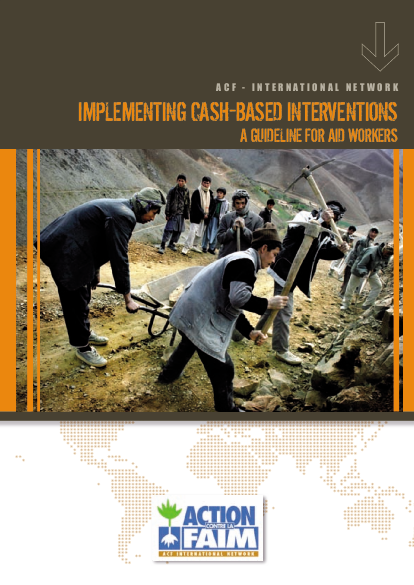
The response to humanitarian crisis or emergency situations has, in most cases, taken the form of commodity (food, shelter, seeds and tools and a variety of other necessary goods, classed collectively by humanitarian agencies as ‘non-food items’) distributions to affected populations. However, a growing body of experience and literature shows an interest in alternatives to inkind distributions, where people are given cash or vouchers instead, which they use to acquire the items they need. In this manual, these are broadly called “cash-based interventions2”. Action Contre la Faim (ACF) has been implementing food security projects in various countries for more than twenty-five years. These have included some cash-based interventions but these have been limited in number as compared to other food security interventions. The purpose of this module to provide ACF with a practical guide for implementing cashbased interventions, by reviewing key literature and thinking on such schemes and drawing lessons learnt from practical cases. To enrich the analysis and benefit from other agencies’ experiences, case studies have been taken from both ACF and other NGOs
Links
Resource collections
- Evaluating humanitarian action
- Innovation
- Monitoring and Evaluation (M&E)
- Monitoring of humanitarian action
- UN Habitat - Urban Response Collection
- Urban Response - Urban Crisis Preparedness and Risk Reduction
- Urban Response Collection - Community Engagement and Social Cohesion
- Urban Response Collection - Economic Recovery
- Urban Response Collection - Environment and Climate Change
- Urban Response Collection - Housing, Land and Property
- Urban Response Collection - Urban Crisis Response, Recovery and Reconstruction
- Urban Response Collection - Urban Resilience
- Use of evaluation evidence